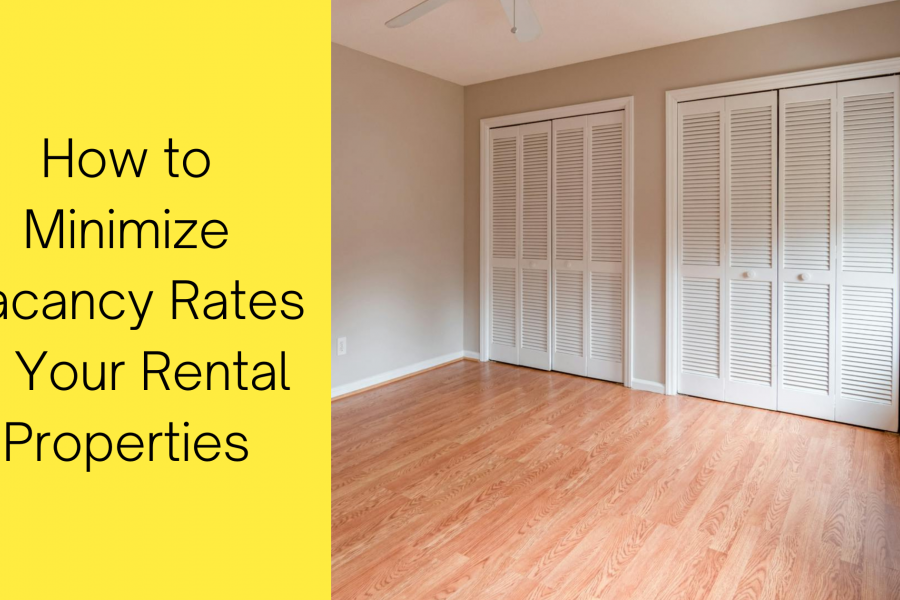
Key Takeaways
- Keeping your rental units occupied is one of the most crucial steps to securing success as a landlord.
- Vacant properties are costly, eating away time and money in the forms of maintenance and security.
- Partner with a property management company to improve tenant retention and fill vacancies fast.
One of the biggest challenges rental property owners face is keeping units occupied. Every day your property sits empty is a day you're losing income, not just from lost rent but from the ongoing expenses you still need to cover like maintenance, utilities, and property taxes. High vacancy rates can quickly turn a promising investment into a financial drain. That’s why reducing vacancies should be a top priority for every landlord or real estate investor.
The good news is that there are proven strategies to minimize downtime between leases and attract long-term residents. Here are a few effective tips you can follow from Mark Thomas Properties PM.
Learn how we can help you maximize your home’s potential.
Understand Why Vacancies Happen
Before solving the problem, it’s important to understand what causes it. Vacancies occur for many reasons. Sometimes, they’re seasonal—people tend to move more in the summer than in the winter. Other times, they’re tied to pricing issues, property conditions, or ineffective marketing. High turnover can also stem from poor communication with residents, unaddressed maintenance concerns, or an overall lack of trust between the landlord and the resident.

Rather than treating vacancies as random or unavoidable, proactive landlords analyze their rental history to uncover patterns. Did most move-outs happen after a year? Did residents complain about repairs? Was the rent too high compared to similar units nearby? Understanding the root causes can guide your approach.
Keep Rent Competitive
One of the fastest ways to reduce vacancy is by pricing your property correctly. Rent that’s too high can scare away potential applicants, while rent that’s too low might fill units faster but lower your long-term returns. The goal is to strike a balance between profitability and market appeal.
To determine the right rate, research similar properties in your area. Look at what’s currently listed and what's recently rented. Factor in your property’s condition, amenities, location, and any upgrades you’ve made. It also helps to monitor how long competing properties stay on the market—if yours is sitting empty while others move quickly, pricing may be the issue.
Adjusting rent strategically can also help retain current residents. Instead of applying steep increases, consider modest annual adjustments that residents are more likely to accept. Keeping a good resident at a fair rate is often more valuable than trying to get a higher rent and risking a vacancy.
Make Your Property Stand Out
Today’s renters are looking for more than just four walls and a roof. Curb appeal, updated interiors, and amenities can all influence how quickly your property gets leased. Even small improvements like fresh paint, new lighting fixtures, or upgraded appliances can help your property make a strong first impression.

Don’t underestimate the power of cleanliness and maintenance either. Properties that look clean and well cared for tend to rent faster. If a unit has been vacant for a while, take time to deep clean, fix any minor issues, and perhaps stage the space to help potential residents picture themselves living there.
Modern renters also value convenience. Adding smart home features like digital locks or thermostats, offering online rent payment options, or including utilities in the rent can make your listing more appealing without drastically increasing your costs.
Optimize Your Marketing Strategy
A common reason rental properties sit empty is that not enough people know they’re available. Having a solid advertising strategy is essential. Gone are the days when putting up a "For Rent" sign or a newspaper ad was enough. Today, most renters start their search online.
Ensure your property is listed on multiple rental platforms and that your photos are high-quality, well-lit, and show the unit in its best condition. Write compelling descriptions that highlight not just the features of the unit but also what makes it a great place to live. Mention nearby schools, transit access, shopping areas, or parks; anything that adds to the appeal.
Learn how we can help you maximize your home’s potential.
Respond Quickly to Inquiries
When prospective renters express interest, speed matters. A slow response could mean they move on to another property. Make sure you're checking messages regularly, responding to calls, and scheduling showings promptly. If you can’t handle this part yourself, it may be time to consider hiring help or outsourcing to a property manager.

People appreciate professionalism and good communication from the start. Being responsive not only increases your chances of securing a lease but also sets a positive tone that encourages long-term residency.
Retain Good Residents
The most effective way to reduce vacancy rates is to avoid them altogether by keeping current residents happy. Retention is far more cost-effective than turnover, which often requires cleaning, repairs, marketing, and new screening.
Start by being accessible and responsive when maintenance issues arise. Regularly inspect the property and take care of repairs before they become major problems. Build a positive relationship with your residents by being fair, consistent, and respectful in your interactions.
Consider adding incentives for long-term leases, such as discounted rent on a two-year term, or renewal bonuses like a free carpet cleaning. Listening to residents’ concerns and maintaining a strong line of communication can go a long way toward keeping them satisfied and staying longer.
Time Lease End Dates Strategically
If possible, aim to have leases end during peak rental seasons when demand is highest, typically late spring through summer. This gives you a better chance of quickly filling a unit. If someone moves out in winter, it may take longer to find a qualified applicant. You can structure lease terms accordingly, or offer shorter or longer leases that align with high-demand periods.
Work With a Professional Property Management Company
While self-managing your rental property is possible, it requires time, effort, and experience to do it well, especially if you own multiple units or live far from the property. That’s where a professional property management company can make a difference.
Property managers specialize in marketing rentals, screening residents, coordinating maintenance, and handling day-to-day operations. They understand how to reduce vacancy rates by keeping your property in top shape, pricing it competitively, and ensuring lease renewals are managed efficiently.
Final Thoughts
Vacancy is a natural part of being a rental property owner, but it doesn’t have to be frequent or long-lasting. By following the above tips, you can keep your units filled and your income steady. If you need professional assistance, work with Mark Thomas Properties PM.
